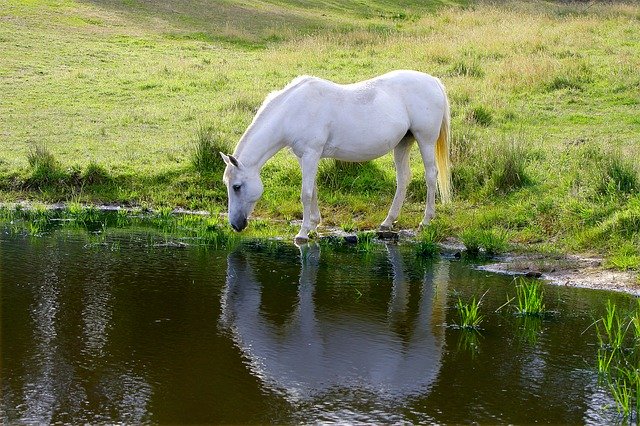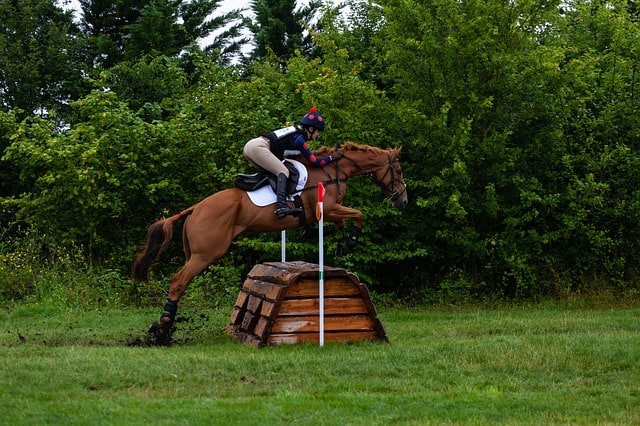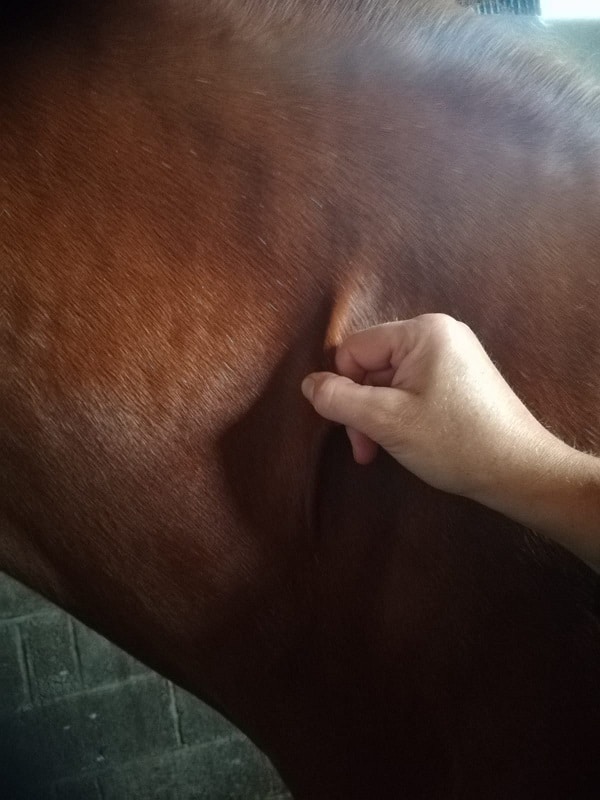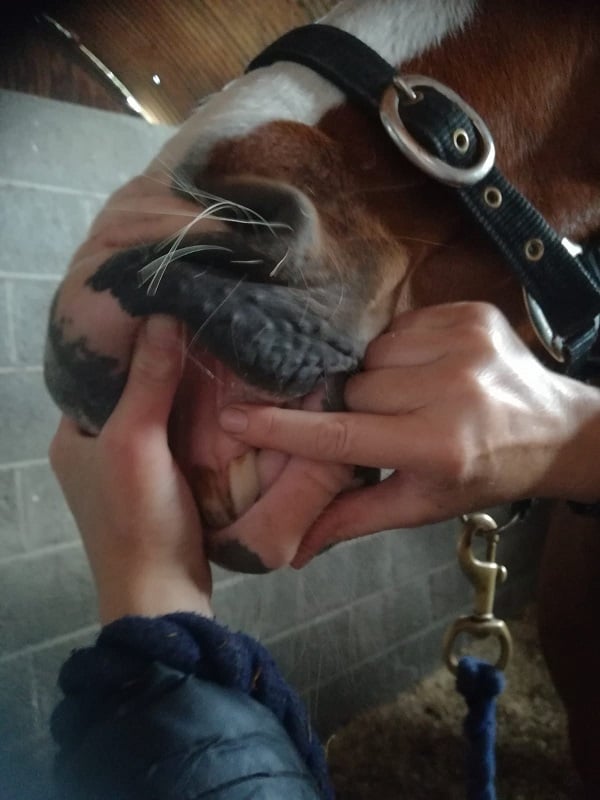It is important to know the signs of dehydration in horses, as severe dehydration can have disastrous effects on the health of the horse, even leading to death. We have all heard the old saying,” You can lead a horse to water but you can’t make him drink”; well here we are going to look at ways to help to keep our horses hydrated, while also encouraging them to drink more especially following exercise, or during periods of hot weather.

The Horse’s Body and Water
The horse’s body is made up of approximately 70% water, so the horse staying hydrated is important to all it’s body’s functions such as digestion, respiration, keeping the blood flowing, urination and defecation to name a few. The average horse will require 6-8 Gallons of water per day under normal conditions, that is over 30 litres! This is increased during times of hot or humid weather and during strenuous exercise, such as long distance riding or eventing, when the horse may require over 3 times the normal amount of water intake. This is why it is important to keep an eye on what your horse is drinking, and make sure during periods of strenuous exercise, that a horse is thoroughly cooled afterward, has adequate fresh water available, and is given electrolytes.
Causes of Dehydration
- Heavy Sweating due to Strenuous Exercise; when the horse becomes hot the horse will sweat to cool his body down and the horse also loses fluid through respiration. He not only loses fluids but also a lot of electrolytes, which are the natural salts and minerals of his body with are necessary for it’s healthy functioning. It is important with horses that are in strong or fast work to feed electrolytes or to supplement with electrolytes to replace any of these lost salts, such as sodium chloride, potassium, magnesium to name a few.
- Very Hot Weather; very hot weather will also cause the horse to sweat more and lose body fluids especially during work, but also in the field, so it is important to have plenty of fresh water readily available for the horse at grass. During periods of intense heat, pay particular attention to young foals, as they can dehydrate rapidly within just an hour or two, causing irreparable damage, or even death.
- Diarrhoea will cause dehydration in a horse, particularly in foals, which can develop a scour for various reasons. It is important to address diarrhoea as soon as possible, and if a foal develops it veterinary attention may be required sooner rather than later.
- Other causes include Kidney Problems and Anaphylactic Shock.

Symptoms of Dehydration
- The horse will appear dull and listless and there will be loss of performance.
- Lethargy
- The horse may appear stiff, as dehydration will affect the muscles.
- Very Dull Coat
- The Urine will appear darker.
- Fail the Pinch test; Pinch a section of skin on the horse’s neck, it should return to normal immediately if it takes a few seconds it is a indication that your horse is dehydration. Recent studies suggest that the pinch test is not very accurate to so be sure to check other factors as well.
Increased Heart Rate.
- The Horse’s Gums will be dry and tacky when dehydrated
- Capillary Refill Test; when you press your finger into the horse’s gum the colour should return almost immediately when normal, if there is more than a couple of seconds delay the horse is suffering from dehydration.
- Lack of Thirst – Dehydration can actually cause lack of thirst.

Treatment
If the horse is dehydrated it is not only important to encourage them to take fluids, but to also introduce electrolytes to balance any salts lost during sweating or other form of fluid loss such as diarrhoea. Electrolytes can be given in feed but there are also paste options available that you can syringe into your horse mouth.
Ways to encourage the horse to drink include chopping up apples and or carrots and adding them to his fresh water, this will encourage the horse to drink, alternatively adding some apple juice to his water can also help.
However if you believe your horse is severely dehydrated, it is best to call the vet as soon as possible as he may have to administer fluids intravenously, this is particularly true in the case of foals, when dehydration can lead to death in just a few hours.

Prevention is Better Than Cure
As with all illness, prevention is better than cure. So to avoid dehydration ensure that there is plenty of fresh water available at all times for your horse. Check drinkers regularly and keep them clean, especially the troughs in the field, this will ensure the water available is clean and fresh.
If your horse is in strong or fast work, always use electrolytes as part of his daily feed. If you just have a happy hacker, a ounce of table salt in the feed twice daily is usually sufficient to keep your horse hydrated, also salt licks in either the stable or field are a good idea. While during periods of hot weather, consider exercising in either the early morning or late evening to avoid any extra stress on your horse.
This Article was originally published in the June 2020 Issue of Irish Sport Horse Magazine.
